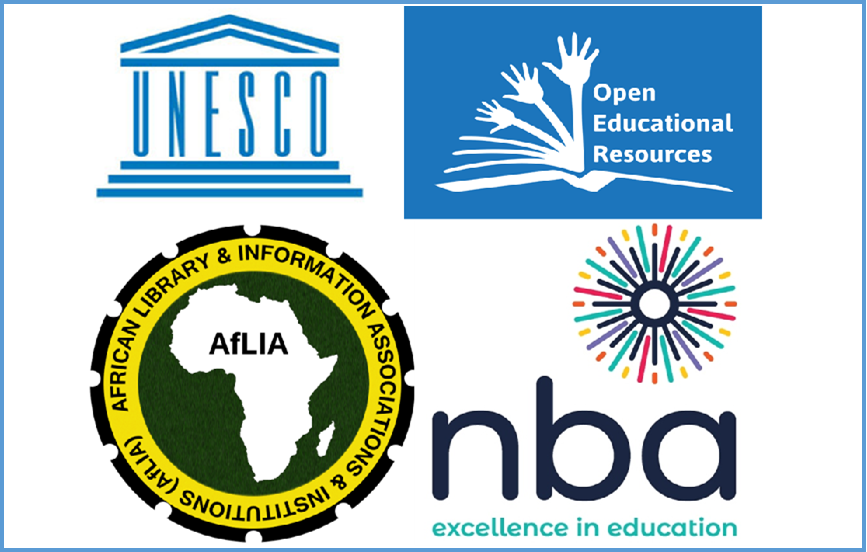AfLIA partners with NBA to implement UNESCO OER Recommendations

NOVEMBER 21, 2022
At the 40th UNESCO General Conference in Paris on 25 November 2019, the United Nations Educational, Scientific and Cultural Organization (UNESCO) adopted the Recommendation on Open Educational Resources (OER). Since then, stakeholders including Governments, international and national development agencies, educational institutions library and information institutions, CSOs and other non-profit organizations, through multi-stakeholder partnerships, are collaborating to operationalize and implement initiatives in support of the four key areas of the Recommendation as follows:
- Capacity building: developing the capacity of all key education stakeholders to create, access, re-use, re-purpose, adapt, and redistribute OER, as well as to use and apply open licenses in a manner consistent with national copyright legislation and international obligations;
- Developing supportive policy: encouraging governments, and education authorities and institutions to adopt regulatory frameworks to support open licensing of publicly funded educational and research materials, develop strategies to enable the use and adaptation of OER in support of high quality, inclusive education and lifelong learning for all, supported by relevant research in the area;
- Effective, inclusive and equitable access to quality OER: supporting the adoption of strategies and programmes including through relevant technology solutions that ensure OER in any medium are shared in open formats and standards to maximize equitable access, co-creation, curation, and searchability, including for those from vulnerable groups and persons with disabilities;
- Nurturing the creation of sustainability models for OER: supporting and encouraging the creation of sustainability models for OER at national, regional and institutional levels, and the planning and pilot testing of new sustainable forms of education and learning;
- Fostering and facilitating international cooperation: supporting international cooperation between stakeholders to minimize unnecessary duplication in OER development investments and to develop a global pool of culturally diverse, locally relevant, gender-sensitive, accessible, educational materials in multiple languages and formats. (UNESCO 2019).
In an effort to operationalize the implementation of the UNESCO OER Recommendations, the African Library and Information Associations and Institutions has signed a Memorandum of Understanding with the Neil Butcher and Associates, South Africa, to develop the capacity of library and information professionals and other stakeholders to support the implementation of the UNESCO OER Recommendation.
Among others, this partnership will develop an open source toolkit on ‘Advocating for OER policies in Africa’ for librarians, which will incorporate capacity-building needs of librarians and decision makers in the library sector. AfLIA will conduct a survey to get baseline data to inform the development of the Toolkit. A series of workshops and webinars will be organized to deepen sensitization about OER and the importance of policies impacting on OER use.
AfLIA will also build the capacity of librarians and key decision makers in the sector to develop policies or include OER considerations in policy development and host brainstorming sessions on advocacy with librarians and relevant agencies, including a step-by-step guide on the best advocacy approach to take, using the ‘Advocating for OER policies in Africa’ toolkit that will be developed.
